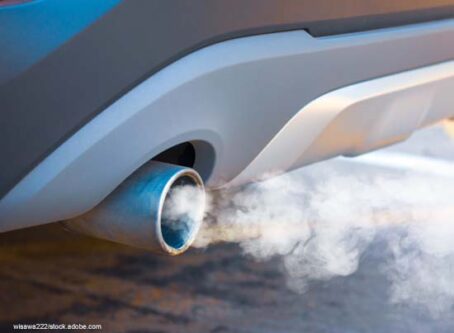Truckers weigh in on Labor Department proposal
One criticism of California’s Assembly Bill 5 is that the law failed to recognize the long history of the owner-operator model in the trucking history. Opponents also contend that state lawmakers neglected to get proper feedback from small-business truckers before passing the rigid worker classification law.
As the U.S. Department of Labor prepares to move forward with a federal test to determine a worker’s status, the Owner-Operator Independent Drivers Association urges the administration not to make those same mistakes.
The Labor Department’s Wage and Hour Division published the 184-page notice of proposed rulemaking on Thursday, Oct. 13. Unlike AB5, the proposal would analyze several factors and use the “totality of the circumstances” to determine if a worker is an employee or an independent contractor.
The public has through Nov. 28 to comment on the notice, which applies to a variety of industries, including trucking. OOIDA President Todd Spencer encourages truckers to weigh in and for the Department of Labor to seriously consider their feedback.
“As we continue to examine every line of the Department of Labor’s proposal, we appreciate that the rule stresses a classification decision should be based on all the circumstances in each specific case,” Spencer said. “However, we have concerns with provisions that could ignore specific aspects of the trucking industry and wrongfully deny owner-operators the chance to continue working as independent contractors. We will continue to review the proposal and provide clear feedback to the department on how to address these concerns and ensure the continuation of the owner-operator model within the trucking industry. Small-business truckers and professional drivers are the backbone of the trucking industry, and failing to listen to them would make any rule unworkable.”
The proposal
The notice of proposed rulemaking would rescind a prior Trump administration rule, which adopted an economic reality test focused on two core factors – control and profit. The Labor Department proposes an economic realities test that requires a totality-of-the-circumstances analysis of multiple factors.
“The department believes that this proposal, if finalized, will provide more consistent guidance to employers as they determine whether workers are economically dependent on the employer for work or are in business for themselves, as well as useful guidance to workers on whether they are correctly classified as employees or independent contractors,” the Labor Department wrote in the notice.
“Accordingly, the department believes this proposal will help protect workers from misclassification while at the same time recognizing that independent contractors serve an important role in our economy and providing a consistent approach for those businesses that engage independent contractors.”
The Labor Department proposal looks at six factors:
- The opportunity for profit or loss depending on managerial skill.
- The investments by the worker and the employer.
- The degree of permanence of the work relationship.
- The nature and degree of employer control.
- The extent to which the work performed is an integral part of the employer’s business.
- The worker’s use of skill and initiative.
“While independent contractors have an important role in our economy, we have seen in many cases that employers misclassify their employees as independent contractors, particularly among our nation’s most vulnerable workers,” Labor Secretary Marty Walsh said in a news release. “Misclassification deprives workers of their federal labor protections, including their right to be paid their full, legally earned wages. The Department of Labor remains committed to addressing the issue of misclassification.”
Initial feedback
As of Oct. 18, the Labor Department had already received more than 400 comments on the notice. Many of the comments came from members of the National Court Reporters Association, who contend the rule “is written too broadly” and will misclassify independent contractors as employees.
Some truck drivers also have weighed in.
“I am truck driver that’s an owner-operator leased on to a trucking company,” Edward Vazemiller wrote. “I want to stay classified as an independent contractor. If this rule passes, me and other truck drivers will be jeopardized significantly, and we will either be stuck with high insurance rates to start our own company or lose our jobs or get paid way lower than what cost of living is.”
Melinda Rizzo pointed out issues caused by AB5 in the trucking and news media industries.
“Defining the worker’s status should be consistent with the IRS criteria for independent contractors, not a law similar to AB5 in California, which has wreaked havoc on a number of contractors and industries – news media and trucking high among them,” Rizzo wrote. “Please consider very carefully the independent contractors you will harm rather than help by restricting for whom we can work. Any new legislation you consider should help everyone, not harm a significant number of small-business owners and independent contractors.”
How to comment
The comment deadline is Nov. 28. Comments can be made here, or by going to Regulations.gov and entering Docket ID 1235-AA43.
The National Retail Federation has already asked the DOL to extend the comment period by another 45 days.
“This rule will have a significant impact on the retail industry, as well as the economy nationwide,” the group wrote. “As such, NRF does not believe 45 days is an adequate period of time for retailers across the nation to fully analyze the proposal and draft well-informed comments.” LL









